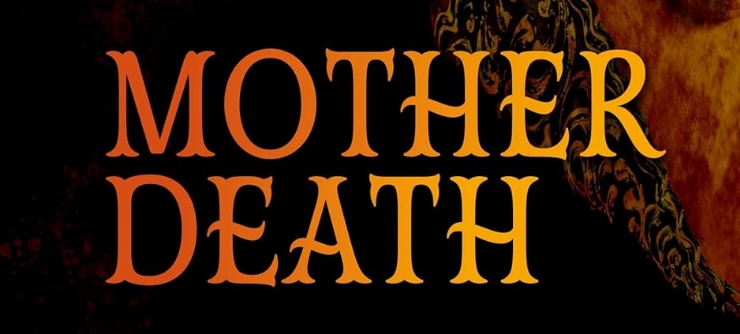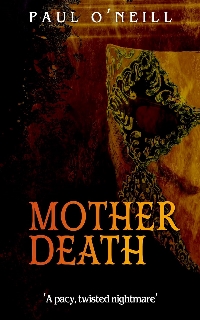Review: Mother Death by Paul O'Neill

I received a free copy of this book from the author in return for an honest review.
‘Dottie Matheson is a selfish mother who has been granted the supernatural power to resurrect her son, Harold, whenever he dies. He uses this ability to shock audiences around Scotland by killing himself on stage over and over again, attracting fame and fortune.
‘As his Circus Nightmare act takes the world by storm, his adoration attracts a demon who wishes to use Harold’s power to re-enter the world. Will they stop the demon on time? Will Dottie redeem her selfish ways before it’s too late?’

What would you do if you could die over and over, safe in the knowledge that no matter how many pieces you’re in, a certain person could bring you back to life?
In Paul O’Neill’s Mother Death, Harold Matheson – a rather unpleasant young man – takes advantage of this situation to gain fame and fortune, brutally killing himself for audiences on stage and, later, online. His mother Dottie is always there to put him back together.
While Harold’s resurrection is a guarantee, other consequences of his repeated deaths prove harder to predict, both in this world and outside of it. Alongside him, Dottie – desperate to make up for her inattentiveness when her son was younger – finds herself up against a range of dark forces, also variously prosaic and supernatural in origin.
If I had to describe Mother Death in one word, it would be “inventive”.
Its very premise makes you sit up and pay attention because it’s so “out there”. I’ve come across stories where a character is resurrected once (pretty sure most people can think of at least one…), or is reborn in/transferred to a different body when they die – but dying, coming back to life, and picking up where you left off, again and again? This was a compellingly original idea to me.
As you may have gathered, Harold’s many deaths are far from peaceful. I had guessed from O’Neill’s short story collection With Dust Shall Cover that they would be described in unflinchingly graphic detail. Even so, I was surprised and impressed by the variety of ways in which Harold dispatched himself, which could give the Final Destination franchise a run for its money.
The level of imagination involved in constructing this story is also evident with every twist of the plot, as the author explores and answers the questions: how would various people react to Harold’s spectacle? Where did Dottie’s new power come from, and what is its cost? Where does Harold go each time he dies, and what effect does it have on him?
As well as the responses I’d expect – fascination among, let’s say, curious people with stomachs of iron; condemnation from religious types – O’Neill examines consequences I hadn’t even thought of. These include attempts to copy Harold, and people wanting to kill Harold for themselves to see if he comes back (the public are unaware of Dottie’s role).
I also felt prompted to ask myself the questions: do I feel “superior” to the people who pay to watch Harold die in gruesome ways, because that sort of thing doesn’t appeal to me personally (and am I mistaking my extreme squeamishness for moral fibre)? Why do Harold’s acts seem so much worse because his mother, as opposed to anyone else, has to witness them?
After all, as the title suggests, this story is more about Dottie than Harold. Harold, by necessity, can’t be a particularly likeable, sympathetic character, because such characters don’t kill themselves in front of their mothers time after time out of greed.
While Dottie wasn’t a particularly nurturing mother when Harold was growing up, by the time the story begins, she’s woken up to this and is doing whatever she can to make amends, which made me warm to her despite her spiky personality and weaknesses. Harold, meanwhile, often reminds her what a terrible parent she was, in order to make her feel bad and get his own way.
Parent-child relationships are obviously a major theme, then, with Dottie also reflecting on her difficult relationship with her own late mother. From the outside, it’s hard to feel like Harold deserves all the help Dottie gives him, but she is blinkered by being his mother, as well as other circumstances.
Mother Death is inventive, unflinching, and thought-provoking.